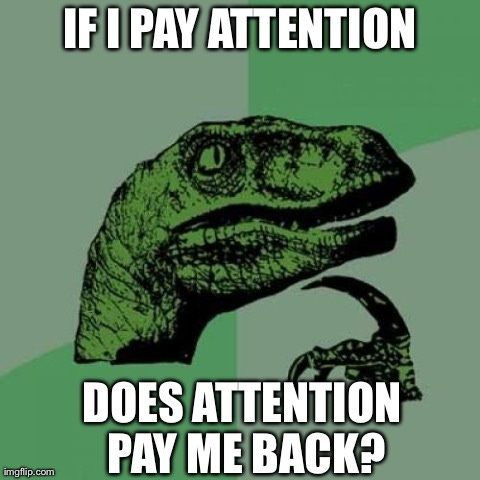What I Wish I knew Before Becoming a Project Manager
These tips could help if you started a career as a Project Manager
You want to start your career as a Project Manager, but you do not know where to start.
There are a ton of sources of information outside and is difficult to choose the right path.
Let me share this with you. Which is the result of observing great Projects Managers and leaders during all these years of experience and things that I learned on my practice.
I hope this is helpful to you!
First things first
Many people will start recommending you a list of trainings and certifications. Yes, the theory is important. But first, I want you to ask this to yourself:
Why do I want to become a Project Manager?
Do I understand the Pros and Cons of this career?
These are fundamental questions that we all need to ask ourselves when starting anything. To help you answer them, I want to give you my point of view of what you will face in the practice.
Let’s start with these two premises:
As on any discipline, you cannot apply the theory by the book
And there are no perfect organizations, clients, teams and certainly no perfect projects
The theory is just the beginning. You need to learn the art of being a Swiss knife, where you are able to use a principle, a tool, a technique or a combination of them whenever is required. And this is acquired with patience and practice.
One of the best questions that someone has asked me in a job interview was: -“What is the perfect project for you?”-
My answer was: -“A project where the team is very responsive, self organized and a client that is very collaborative being open to work in an Agile culture”-
When I saw the interviewer’s face I realized that I was completely wrong. And he replied:
-“What would you learn from a project that you are describing? Wouldn’t you be prouder of a project that had a lot of challenges and where you were able to resolve them and deliver what was expected? ”-
I did not want to continue with this job position and I don’t think they would have accepted me either, since I did not feel I really knew what I wanted. This single question made me re-think my whole purpose as a Project Manager.
As any other specialized role, we are hired to solve problems. Otherwise, if this role were easy, it would be automated and no project managers would be required at all.
“A smooth sea never made a skilled sailor”
If you understand that:
Dealing with difficult situations is common and you are willing to do it
Most of the time your job will be to find solutions to be able to deliver on time and as expected
Every experience will make you stronger, meanwhile you do a self-reflection to treasure that as a lesson learned
You are on the right track.
One caveat to this is that it does not mean that you need to suffer all the time and support toxic working environments. You also need to learn how to choose your battles.
So what do you need to navigate through difficult situations and become a great Project Manager?
These are the skills that you would need to have and cultivate:
Communication
90% of the job of a Project Manager is communication. You need to be an excellent communicator: written, verbal, non verbal and even your behaviors which also communicate things.
You need to adapt your communication styles depending to the person you are talking to. It will be different if you are talking to a C-level person, a team member, a peer or a client. And also, you need learn when to apply any of these channels of communication:
Verbal:
One on one meetings
Leading group meetings (Business, Technical, Team Buildings, Agile Ceremonies, Informal)
Coaching, mentoring or feedback sessions
An elevator pitch
Written:
Instant messaging, e-mail
Presentations (executive, team oriented)
Reports or metrics
And for all of these you need to observe, listen carefully and put yourself in the shoes of the recipients of your message. How my recipient will understand better my message and take the action needed for this project?
Knowing the channels and styles of communication is not enough, you need to be assertive: “Being assertive means finding the right balance between passivity (not assertive enough) and aggression (angry or hostile behavior).” source: mindtools.com
The ultimate goal is to make sure your message is received and to align everyone to the goals of the project.
I recommend you to look for some formal trainings but most and foremost, learn through experience and practice.
But, being a great communicator is not enough. If your tasks and your project are all over the place.
Organization
Most likely you will be assigned to not only one but multiple projects at the same time and even someday you will manage a program.
If you do not organize your time and your tasks how are you supposed to organize your teams, projects and programs?
Your time is limited, but the demand of work is not. You need to know how to:
Prioritize: Determine what is important vs. urgent. See the Eisenhower matrix
Understand your limits very well and make sure to push back when you are getting out of your work-life balance. Learn how to say no when something is not urgent and not important or delegate when something is less important
Multi-tasking: This is controversial and I hate to mention it, since I do not recommend my teams doing this, but a Project Manager needs to know how to multi-task.
On a typical day you have to complete all the tasks and follow-ups for that day, plus attending, leading and taking notes during meetings, answering urgent chats, e-mails and do some work to be ready for the next task or meeting. Or even worst, trying to attend or manage multiple meetings at the same time?
This is stressful and I usually finalize my day exhausted. I compare this to a control tower operator job, as multiple things happen at the same time and very often you have to deal with it.

Is just not about multi-tasking but closely follow up:
In addition to the rush I mentioned before, you need to make sure to stay on the top of things.
Every meeting or conversation, every message and every e-mail is a potential action item. So you need to analyze all of them, understand the context, distill the sea of information into what matters and determine the right action items that you need to follow up.
And for all of that, you need to learn how to read fast, to take the right notes, have common sense and a lot of practice and again, patience to yourself.
Also, you will need a system to manage your tasks and information. Some tools that you can use are:
Or at least use consistently a physical or digital notebook or sticky notes
Great! you communicate really well, you are on the top of things, but that is not enough, you need to develop consistency.
Discipline
I practice Martial Arts and one of the secrets to become a master and dominate the techniques to control your body, is repetition.
You start slow to make sure you do the technique the right way and after thousands of repetitions your muscle memory will remember it and your brain and body will do it automatically in unexpected situations.
The same thing happens when you are leading a call, you write an email, a Slack or take notes in a meeting. At the beginning is hard but if you start slowly and continue practicing eventually you will master it and will come naturally.
You have to preach by example. If you are asking your team to be consistent, you should be consistent too:
Be on time for meetings
Be organized
Apply the best Project Management, Agile and Lean principles to you and to your day to day activities
At the end is all about integrity: “what we say, what we do, and what we say we do.”
Here is a great video that I liked and recommend. I am not telling with this that everybody should wake up at 4am, but I really liked how they showed this level of discipline, organization and the freedom that comes with it:
Now, being a Project Manager is an endurance journey, you do not achieve it overnight. What else do you need?
Ownership, Motivation and Resiliency
Sometime ago, I was leading a big sync up program meeting and when I asked each of the attendees for their status, there was an uncomfortable silence and I did not have the engagement I expected. The meeting was a mess and I felt really bad and frustrated. At that particular moment, I did not realized that there were some other underlying problems with that program.
When I told my manager about it, he told me: “It is ok to stumble, you need to experience that from time to time and move forward”. These words still resonate on my mind nowadays.
We are constantly told that we have to be perfect and that failure is wrong and it is even punished. The reality is that we are not machines. And if you are professional enough and you do your job in the most honest and best possible way with your available resources, experience and skills and you fail, you have to understand that the situation surpassed your limits.
Do you blame yourself or others? no. You learn and take the ownership of the situation and continue.
I recommend you this video that talks about an interesting concept called “extreme ownership”.
The resiliency is the capability to recover quickly from difficult situations and to do this multiple times, you need find the right motivation to continue doing your work as a Project Manager. Otherwise, you may quit or you may want to find another career that will be more attractive to you.
A company, a boss and nobody else will give it to you. You need to find it within yourself. If you chose this job is because overall, with the ups and downs, you still enjoy the satisfaction of delivering a great product, project or service.
What I have discovered is that the main difference between a senior and a junior Project Manager, besides the knowledge and the experience, is how you react to adverse and difficult situations:
A junior behavior is typically around blaming, complaining and being too emotional about difficulties and manifesting this to everyone, expecting the others to solve it
Is like a child watching a Disney movie over and over again, expecting to have a different ending
The quantum jump from junior to senior happens when the junior realizes that:
The external circumstances are out of our control and the only thing that we can control is how we feel and react over a situation
And we are the only ones responsible to take the right actions, if we want a situation to change
Let’s think about a difficult meeting with a customer, where instead of blaming others, you stay as calm as possible, focus on the facts and you take the responsibility of that situation and the steps that will take you out of that
It is easier to say than done.
Something you can do is to practice meditation to help you identify your negative emotions and make an introspection to identify when and how to react differently. Otherwise, you will be repeating incorrect behaviors again and again.

If you have all what I have mentioned before, it will help you drastically on being successful but if you do not understand your projects and the teams that participate on them, I doubt you would be able to be an effective Project Manager.
Learn the context of your projects
Have you seen this meme about the Scrum Master parrot that only says “how is it going?”
Although the project manager role is a totally different one of a Scrum Master, you can read my blog post where I explain this further, this meme is applicable to the Project Managers too.
We cannot just be maintainers of Gantt charts, roadmaps or ticketing systems or just ask for status and due dates.
We need to have enough context, understand the technicalities, the complexity of our projects and the challenges our teams face to be able to help them properly plan, decide, strategize and execute better.
How about to help your teams to:
Find solutions by conducting a brainstorming session
Connect them with the right team and make some agreements about how to collaborate better
Identify underlying issues about a low team morale, unseen frustrations and take key actions to resolve them
Follow up on key decisions, remove blockers and dependencies
My general recommendations that will help you get the right context and understanding are:
If you are not directly involved on picking up requirements, make sure to stay in the loop and be in sync with your product managers and business analysts to make sure you have a clear understanding. Help them manage the backlog and plan together
Improve your product management skills. I found very interesting resources in Product School
Take some trainings and high level understanding on: Programming, cloud infrastructure (AWS, GCP, Azure), DevOps and software quality assurance so you are up to date with the technicalities of your project
Understand the Business and the jargon of your organization. What is the value that they are looking for?
Google any technical or business concept that you do not understand to get an idea or ask for an explanation
Conclusion
In summary, pay attention to these aspects:
Internalize why you want to become a Project Manager
Learn how to communicate really well at all levels and possible ways
Be organized and disciplined
Take ownership, find motivation within yourself and be resilient on adverse situations
And understand the context of your projects and products to be a really helpful Project Manager. You don’t want these memes to apply to you ;)
Hope you enjoyed this article! Let me know what you think in the comments. If you're feeling generous, you can buy me a coffee to fuel my writing!
Share this article if you liked it:
Subscribe to receive more posts:







